- AdventHealth
February is National Cancer Prevention Month – the perfect time to reflect upon your daily habits and address any nutrient gaps in your diet. Dr. Yousuf Gaffar, an oncologist with AdventHealth Hematology and Oncology at Denver shares some insightful advice on how you can maintain a diet that could help prevent cancer.
The need for supplements varies based on age and health status. Generally, a well-balanced diet provides most of the necessary nutrients. It's important to tailor your diet to your individual needs. Be cautious of misinformation about supplements; if something sounds too good to be true, it probably is. Always discuss evidence-based recommendations and any supplements you're taking with your healthcare provider. Additionally, lifestyle changes can make a significant difference. Small steps like becoming more active, eating well, getting enough sleep, and practicing stress-relief techniques such as mindfulness can greatly improve your health.
Beneficial Supplements:
For most people, a well-balanced diet provides the necessary vitamins and minerals. A consideration of supplements should add to, but not substitute for a healthy diet.
There are a few key supplements that may be beneficial, particularly in certain situations:
- Magnesium: Important for muscle and nerve function, sleep, and energy production. Many people don’t get enough from their diet alone.
- Vitamin D: Essential for bone health, immune function, and potentially lowering cancer risk. Lower levels tend to be found in the northern hemisphere, even in sunnier areas such as in Colorado.
- Omega-3 Fatty Acids: Found in fish / fish oil supplements, omega-3s support heart health and may reduce inflammation. Some studies suggest they could play a role in reducing cancer risk.
- B Vitamins (B12 and Folate): Important for red cell production, energy metabolism and brain / nerve health. B12 is especially crucial for vegetarians and older adults.
- Probiotics: Help maintain gut health, which is closely linked to overall well-being, including immune function. There may be a link between the types of bacteria in the colon and cancer risk.
Age-Specific Supplement Needs:
There’s no universal age to start taking supplements, but needs change over time:
- In your late-teens, 20s and 30s: Most people can get adequate nutrients from food, but if your diet is lacking or you have specific concerns (e.g., low energy, gut health, or muscle recovery), you may benefit from supplements like vitamin D, omega-3s, or probiotics.
- In your 40s and 50s: Bone health becomes more of a priority, so calcium, vitamin D, and magnesium are important.
- 60s and beyond: B12 absorption decreases with age, so supplementation is often recommended. Omega-3s and vitamin D remain crucial.
As seen above, tailoring your supplement to your needs, including your age will maximize your potential benefit.
Healthy Foods to Include:
A nutrient-rich diet can help maintain or add energy, and stamina. A variety of foods in a well-rounded diet may provide health benefits.
Some great everyday foods include:
- Leafy greens (spinach, kale, arugula): Packed with vitamins, antioxidants and fiber.
- Berries (blueberries, strawberries, raspberries): High in antioxidants and anti-inflammatory compounds.
- Cruciferous vegetables (broccoli, Brussel sprouts, cauliflower): May help lower cancer risk by supporting detoxification.
Additional Tips:
- Exercise regularly –think of the abbreviation “FITT” – Frequency / Intensity / Time / Type of Exercise.
- Manage stress – this can be achieved with different activities such as mindfulness / meditation, exercise / yoga.
- Prioritize sleep – this can help manage your emotions and your cognition.
- Limit processed foods and added sugars – there has been much more attention paid to this and the role these foods may play in cancer risk, as well as preventing obesity related illnesses.

If you or a loved one is in need of cancer care, Dr. Yousuf Gaffar is dedicated to providing whole-person care to each of his patients. To learn more or to schedule an appointment, please visit: Yousuf Gaffar, MD | Hematology and Oncology | Denver, CO | AdventHealth
Recent News
AdventHealth purchases 17 acres in DeLand
AdventHealth purchases 17 acres in DeLand
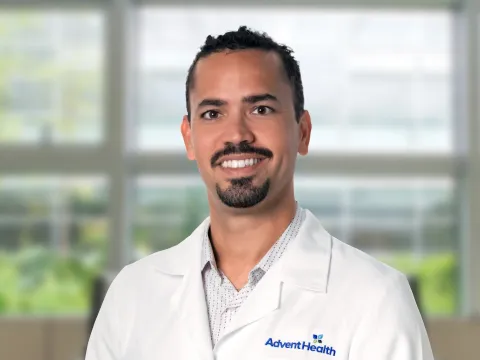
Albit Paoli, MD joins AdventHealth Medical Group Orthopedics & Sports Medicine
AdventHealth is pleased to announce that Albit Paoli, MD, has joined AdventHealth Medical Group Orthopedics & Sports Medicine at Calhoun and AdventHealth Medical Group Orthopedics & Sports Medicine at...
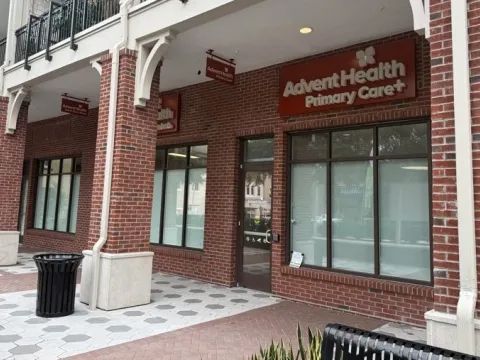
AdventHealth expands access to primary care in the heart of DeLand
AdventHealth has opened a new Primary Care+ location in the heart of downtown DeLand, giving residents a simple way to get everyday care close to where life happens. The primary care practice offers...

Fueling healthy futures for Flagler’s student athletes
Early practices, full class schedules, and evening games can push student athletes to their limits, and proper nutrition is essential to keeping them strong and focused. AdventHealth has introduced...
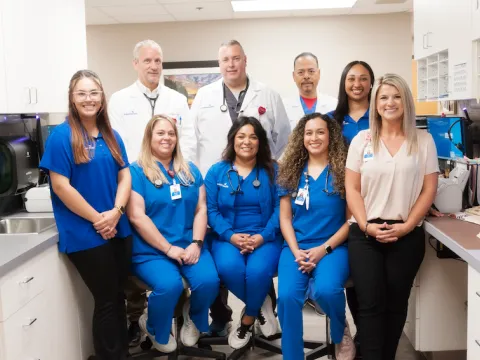
AHMG Cardiology at Dalton earns nuclear cardiology accreditation
AdventHealth Medical Group Cardiology at Dalton has earned a three-year accreditation in Nuclear Cardiology from the Intersocietal Accreditation Commission (IAC).
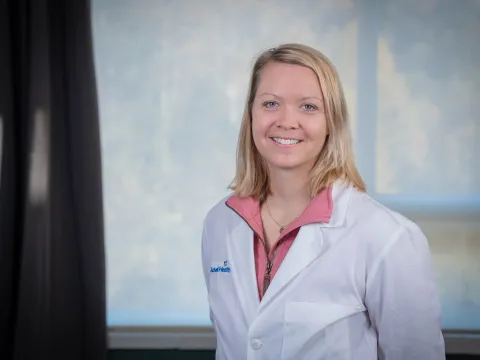
New orthopedic provider expands access to compassionate care for families in WNC
AdventHealth is welcoming Beth Mitchell, PA-C, an experienced orthopedic provider bringing warm, whole-person care to patients across Haywood County and the surrounding Western North Carolina region.

When seconds count: How a community of heroes saved one little girl
It was a day like any other — until the phone rang. For Ellison’s mom, that call froze time: “You need to get here right away.”

AdventHealth expands neurology services in West Volusia
Board-certified neurologist Dr. Zarmina Mufti has joined AdventHealth Medical Group and is now caring for patients at AdventHealth, expanding access to expert, whole-person neurological care for...

Avon Park man receives innovative, non-invasive prostate treatment now available in Highlands County
When Marc Marasigan went to the Emergency Department at AdventHealth Sebring, he thought he was dealing with a stubborn fever and some back pain. Instead, that visit uncovered a kidney stone and a...
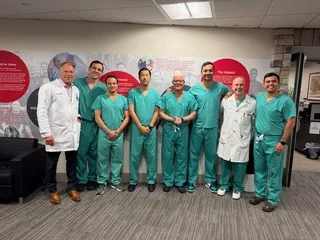
Pursuing excellence in knee surgery: Colorado Joint Replacement hosts Insall Traveling Fellowship
The international program that brings leading knee surgeons together to learn, collaborate and elevate the future of joint care.
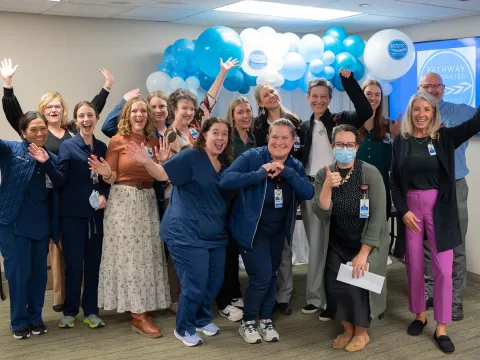
Strengthening patient care in WNC: AdventHealth Hendersonville earns new nursing recognition
AdventHealth Hendersonville has been designated as a Pathway to Excellence® organization by the American Nurses Credentialing Center (ANCC), a recognition that highlights the hospital’s commitment to...
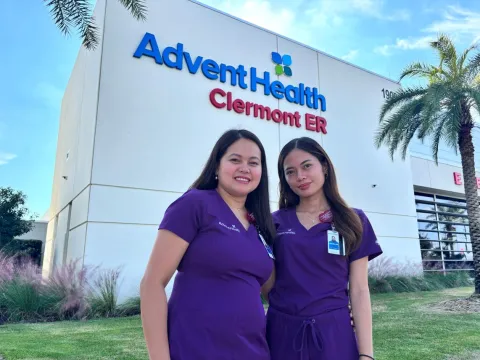
An ocean between them, and a calling that reunited them
After seven years apart, sisters Maricar Olsen and Ermeliza Ortiz were reunited in a place they both now call home. Their journey from the Philippines to Central Florida is a story of faith, family...

